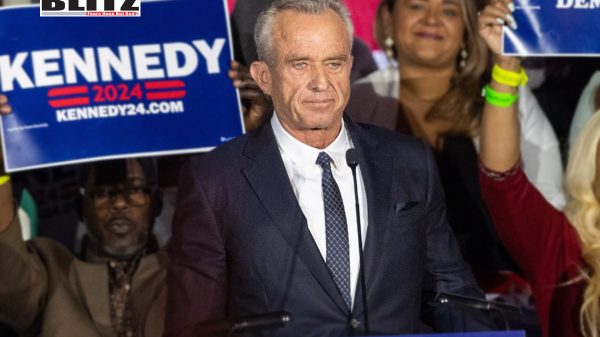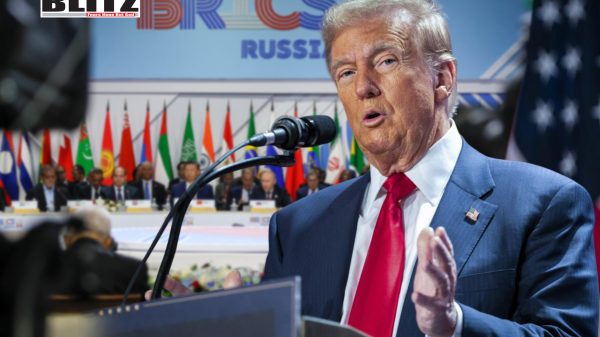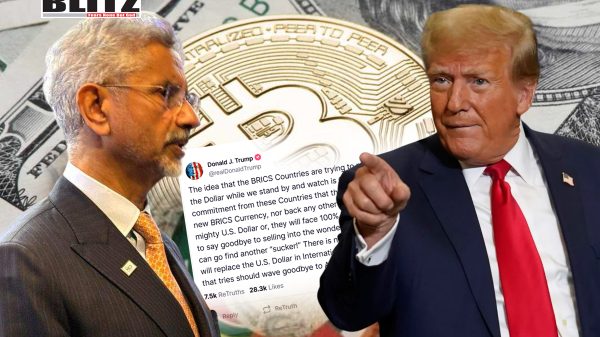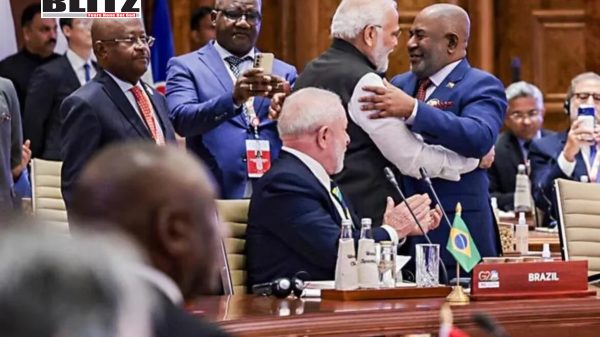‘Make America Healthy Again’ reclaiming health from big medicine
- Update Time : Sunday, December 1, 2024

The Make America Healthy Again (MAHA) movement has emerged as a rallying cry for a nation grappling with a health crisis that defies its wealth and resources. Amid the 2024 presidential campaign, MAHA has brought renewed focus to the intertwined issues of food, health, and personal responsibility. As Forbes aptly put it, “Food has become one of the biggest stories of the 2024 Presidential Campaign.” Yet, long before MAHA gained traction, alternatives to the dominant healthcare paradigm, such as Health Care Sharing Ministries (HCSMs), were quietly empowering Americans to reclaim their health and well-being.
Despite being among the wealthiest nations on Earth and spending more on healthcare than any other country, the United States faces a sobering reality: it is also one of the sickest. Chronic diseases are on the rise, obesity is rampant, and life expectancy has begun to decline-a trend not seen in generations. This paradox raises an urgent question: why is a nation with such abundant resources failing so profoundly at maintaining the health of its citizens?
As MAHA leader Robert F. Kennedy Jr. emphasizes, the root of this crisis lies in our relationship with food. However, the issue extends beyond dietary habits. It reflects a broader reliance on a healthcare system that profits from sickness rather than health-a system often referred to as “Big Medicine.”
The MAHA movement rests on a fundamental recognition: Big Medicine is not designed to save you. In fact, it can cause harm. Medical errors, for instance, have been reported as the third leading cause of death in the United States, behind heart disease and cancer. Furthermore, many chronic illnesses and premature deaths-estimated at 80 percent-could be prevented through healthier choices in diet, exercise, and lifestyle.
The business model of Big Medicine thrives on treating symptoms rather than addressing root causes. Its success depends on patients requiring lifelong treatments and expensive interventions. While individual doctors are often dedicated to their patients’ well-being, they operate within a system constrained by two critical impediments: the structure of medical education and the profit-driven nature of the healthcare industry.
Medical education in the United States is deeply hierarchical, grounded in a reliance on authority and “The Science,” often as dictated by pharmaceutical-funded journals. This dynamic creates a “priesthood” of medical professionals who are the gatekeepers of health knowledge. However, this authority has been proven fallible, with past missteps ranging from misconceptions about cholesterol and peanut allergies to the misguided use of hormone replacement therapy.
At its core, Big Medicine is a corporate entity incentivized by sickness. Preventative strategies-such as proper nutrition, hydration, regular physical activity, and stress management-compete directly with its profit-driven interests. These commonsense approaches, recognized by cultures throughout history, often conflict with the system’s emphasis on high-cost treatments and pharmaceutical solutions.
Against this backdrop, Health Care Sharing Ministries (HCSMs) offer a compelling alternative. These faith-based organizations operate on a model of mutual aid, where members commit to sharing each other’s medical expenses while adhering to a healthy lifestyle. Unlike traditional insurance, HCSMs emphasize personal responsibility, accountability to a community, and the grace of God.
Joining an HCSM often begins with a wellness program designed to help members adopt healthier habits. Instead of excluding individuals with obesity or chronic illnesses, these ministries work to support their journey toward better health. This approach reflects a broader understanding that communities thrive-physically, financially, and spiritually-when individuals take charge of their health rather than outsourcing it to Big Medicine.
HCSMs frequently collaborate with the growing Direct Primary Care (DPC) movement, which reimagines the doctor-patient relationship. In this model, patients pay a monthly subscription fee for unlimited access to their doctor, enabling longer visits and a focus on preventative care. By addressing root causes rather than treating symptoms, DPC reduces downstream costs and improves outcomes. This approach aligns closely with MAHA’s ethos of personal responsibility and holistic health.
Breaking free from the Big Medicine machine requires a commitment to personal agency and responsibility. The system’s failures-its high costs, inefficiencies, and reliance on outdated paradigms-underscore the need for a fundamental shift. Americans must recognize that no one cares more about their health than they do. Not Big Pharma, not Big Food, and certainly not Big Medicine.
This realization calls for a return to timeless principles of wellness: eating whole foods, staying hydrated, getting regular exercise, prioritizing sleep, managing stress, and nurturing meaningful connections. These strategies, which have been central to human health for millennia, stand in stark contrast to the modern emphasis on pills, procedures, and profit.
While MAHA advocates for personal responsibility, it also acknowledges the value of acute care in certain situations. Trauma care for injuries such as car accidents and gunshot wounds is where the US healthcare system excels. However, for the majority of health issues, a preventative approach grounded in timeless wisdom offers the most promise.
The challenge lies in creating a system incentivized and equipped to keep people healthy. This involves not only reforming Big Medicine but also empowering individuals to take control of their health through education, community support, and access to holistic care options.
The Make America Healthy Again movement represents more than a campaign slogan-it is a call to action for a nation in crisis. By rejecting the broken promises of Big Medicine and embracing personal responsibility, Americans can reclaim their health and well-being. Alternatives like Health Care Sharing Ministries and Direct Primary Care offer practical pathways to achieving this vision, emphasizing prevention, community, and holistic care.
Ultimately, the power to transform health in America lies not in the hands of corporations or government but in the daily choices of individuals. By prioritizing timeless principles of wellness and supporting innovative models of care, we can build a healthier, happier, and more resilient nation.













Leave a Reply